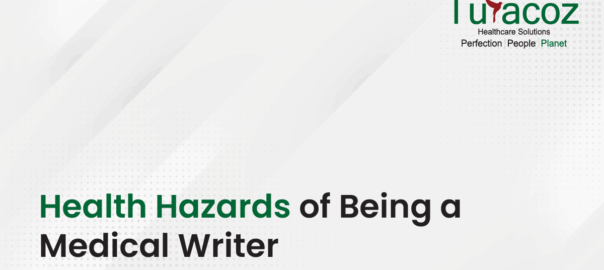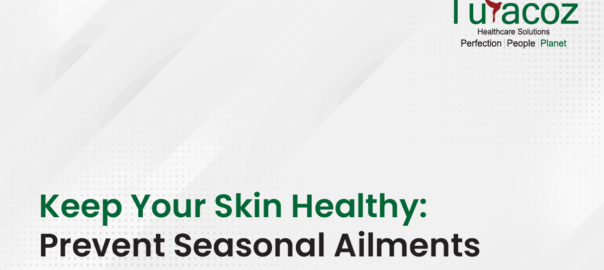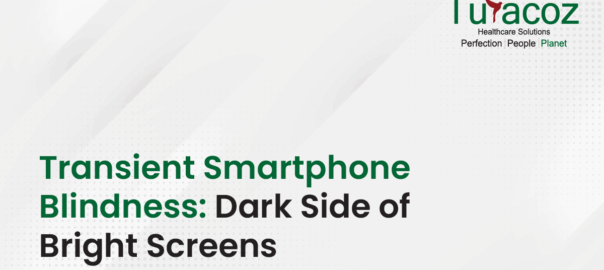Being a medical writer has a lot of allure, particularly if you are having a flexible work schedule, competitive salary package, and assured growth as a professional. However, having these advantages doesn’t insulate you from some of the hazards that you may face as a medical writer. Medical writing, being a sedentary job, requires sitting behind a desk for long hours, which over a period of time can take a toll on your health.
The Risks
- Metabolic Diseases
Medical writers spend their maximum awake time sitting and working. Sedentary lifestyle and reduced physical activity contribute to the excessive body fat around the waist and abnormal cholesterol levels, which are major risk factors for certain diseases like obesity, hypertension, and diabetes.
- Cardiovascular Diseases
The sedentary lifestyle attributes to abnormal cholesterol level which is a major risk factor for cardiovascular diseases like atherosclerosis, stroke, angina, and heart attack. It is found that the risk of heart disease is increased by 50 per cent in a sedentary worker (who sits for 11 hours or more a day) even if exercise is performed regularly.
- Posture Problems
Due to the nature of work, a medical writer usually works in a ‘static posture’ throughout the day that results in a faulty ergonomics. Rotator cuff disease, chronic pain in the neck, shoulder, back or hand, ruptured disks, and pulled or strained muscles/ligaments are the few disorders that might occur due to static posture. Several studies have reported that there is an increased risk of physical injuries if a worker maintains a static posture throughout working hours.
- Bone and Joint Disorders
Spending daily 8 hours or more working on a desktop/laptop without any significant movement of the joints and muscles of limbs may result in loss of muscle mass, loss of muscular flexibility, carpal tunnel syndrome, and hand/wrist tendinitis.
- Eye Problems
Prolonged working on a desktop or laptop and gazing the screen for hours expose eyes to undue effects of brightness of the screen that later results in eye strain, temporary blurred vision, headaches, and migraines.
- Psychological Problems
In today’s competitive world, analogous to any other professional, medical writers also experience several psychological problems like stress, anxiety, exhaustion, depression, and disordered sleep.
The Remedies
Overall, being more physically active is the basic remedy to reduce the chances of all the potential health problems that are associated with the sedentary nature of the work of a medical writer. It is recommended that a sedentary worker (e.g. a medical writer) should spend a minimum of 10 minutes in moderate- or vigorous-intensity aerobic exercise to improve circulation of blood and burn calories. Additionally, there are a few health tips which a medical writer should follow:
- Take regular breaks during the working hours. After every couple of hours, stand up from the desk and move around.
- After every 30 minutes of desktop work, do basic stretching exercises at your desk. This will help in maintaining flexibility of the muscles.
- Avoid getting locked into a static posture. Change your posture frequently by adjusting the angles of your hips, knees, ankles, and elbows while sitting.
- Be more active: take stairs instead of the lift, prefer public transport or cycle to work.
- Eat smart. Avoid binging and unhealthy eating habits.
- Keep your body well hydrated by drinking enough amount of water.
- Don’t eat while you work. Ensure you eat lunch away from your desk.
- Adjust the brightness of the screen of your laptop/desktop. Don’t gaze the screen fora long Take regular breaks to relax your eyes.
- Ensure that you spend at least an hour each week in outdoor sport or leisure activity of your choice.
- Don’t work hard, work smart.Plan well before you start to work, divide all major tasks into sub-tasks and organise your work schedule. This will help to reduce the chances of having stress and anxiety.
- Don’t be a workaholic! Make sure you spend a reasonable amount of time with your family and friends, which is important for your mental and emotional well being.
Being sedentary is the root-cause of most of the health problems. Making appropriate lifestyle changes in your daily work schedule may reduce your risk of having these health problems. As a medical communication company, we at Turacoz Healthcare Solutions always encourage our medical writers and everyone to exercise daily and lead a physically active, healthy life.



